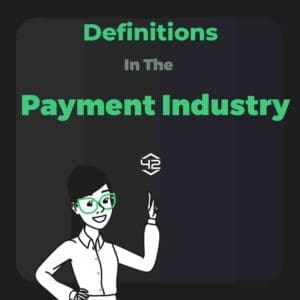The Most Important Keywords in the Payment Industry
Part 1
A comprehensive guide to understanding the essential terminology that shapes the dynamic world of payments. Dive into the key concepts and definitions that form the foundation of modern payment systems and stay informed in this rapidly evolving industry:
- Payment Gateway: A payment gateway is a technology platform that facilitates the secure transmission of payment data between customers, merchants, and financial institutions. It allows for online and electronic payments, ensuring the encryption and secure transfer of sensitive payment information.
- Merchant Account: A merchant account is a type of bank account that enables businesses to accept and process payments from customers. It serves as a holding account for funds received through credit card or electronic payment transactions before they are transferred to the business’s designated bank account.
- Acquiring Bank: An acquiring bank, also known as a merchant bank or an acquirer, is a financial institution that facilitates the processing of payment transactions on behalf of merchants. It authorizes and settles transactions, manages merchant accounts, and transfers funds from the customer’s issuing bank to the merchant’s bank account.
- Issuing Bank: An issuing bank, also referred to as an issuer, is a financial institution that provides payment cards (such as credit or debit cards) to consumers. It is responsible for approving or declining transactions based on the availability of funds and ensuring the secure transfer of funds from the cardholder’s account to the merchant’s account.
- Payment Processor: A payment processor is a company or service provider that acts as an intermediary between the merchant and the acquiring bank. It handles the technical aspects of payment transactions, including capturing and transmitting payment data, verifying transaction details, and facilitating communication between the merchant, acquiring bank, and issuing bank.
- Chargeback: A chargeback occurs when a customer disputes a transaction and requests a refund from their issuing bank. The issuing bank then investigates the claim and may reverse the transaction, returning the funds to the customer. Chargebacks are typically initiated for reasons such as fraud, product/service dissatisfaction, or unauthorized transactions.
- PCI DSS: The Payment Card Industry Data Security Standard (PCI DSS) is a set of security standards established by major credit card companies to protect cardholder data and ensure secure payment processing. Compliance with PCI DSS is mandatory for all businesses that handle, store, or transmit payment card data.
- Tokenization: Tokenization is a security measure used to protect sensitive payment card data. It involves replacing the actual card information with a unique identifier called a token. Tokens are used for transaction processing, reducing the risk of exposing sensitive card details in case of a data breach.
- Contactless Payments: Contactless payments allow customers to make secure payments by tapping or waving their payment cards, mobile devices, or wearable devices near a contactless-enabled terminal. This technology utilizes near-field communication (NFC) to facilitate quick and convenient transactions without the need for physical contact.
- Mobile Wallet: A mobile wallet, also known as a digital wallet, is a virtual wallet that allows users to store payment card information and make payments using their smartphones or other mobile devices. It securely stores card details and enables convenient and secure transactions through various mobile payment apps or platforms.

